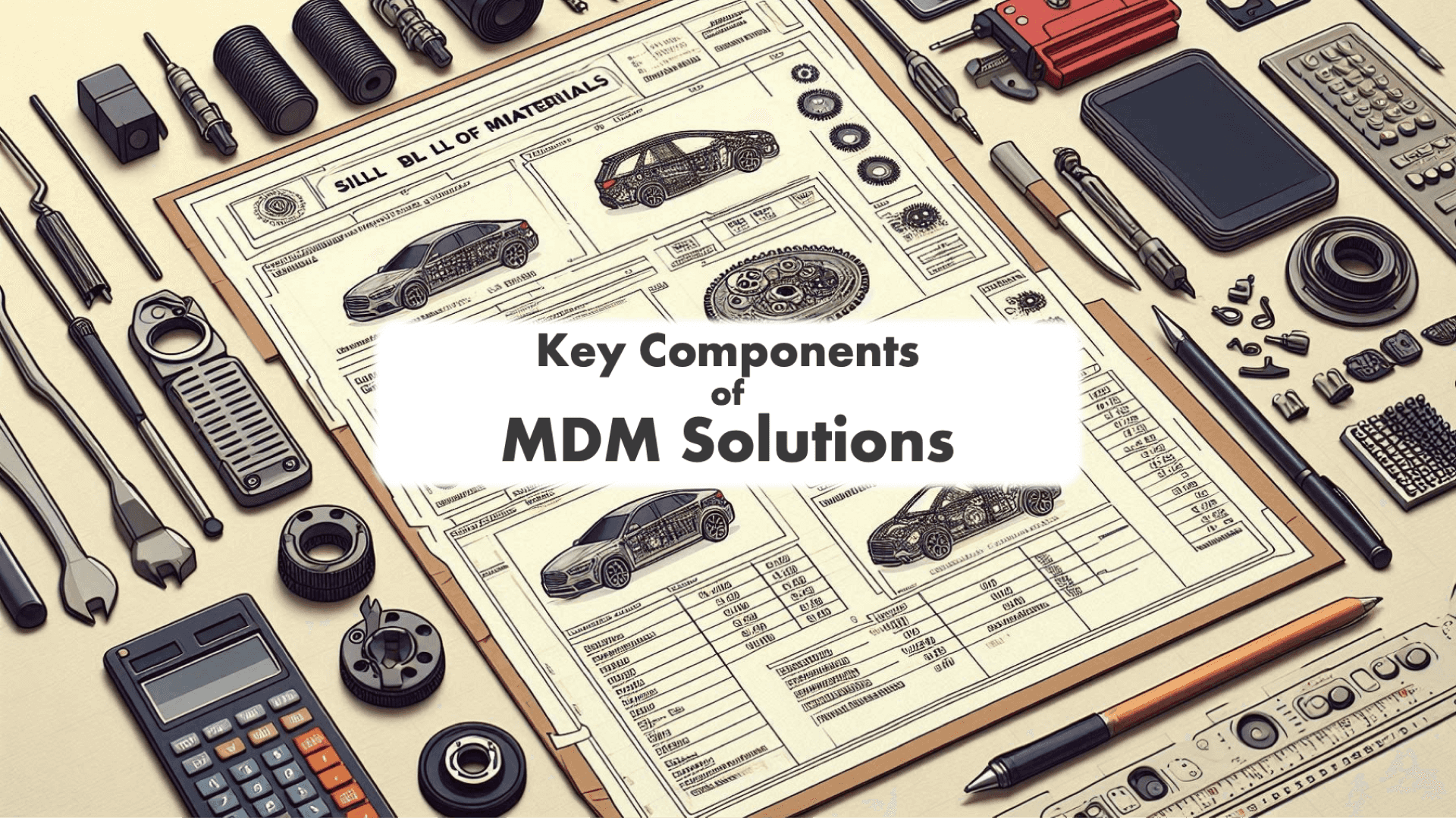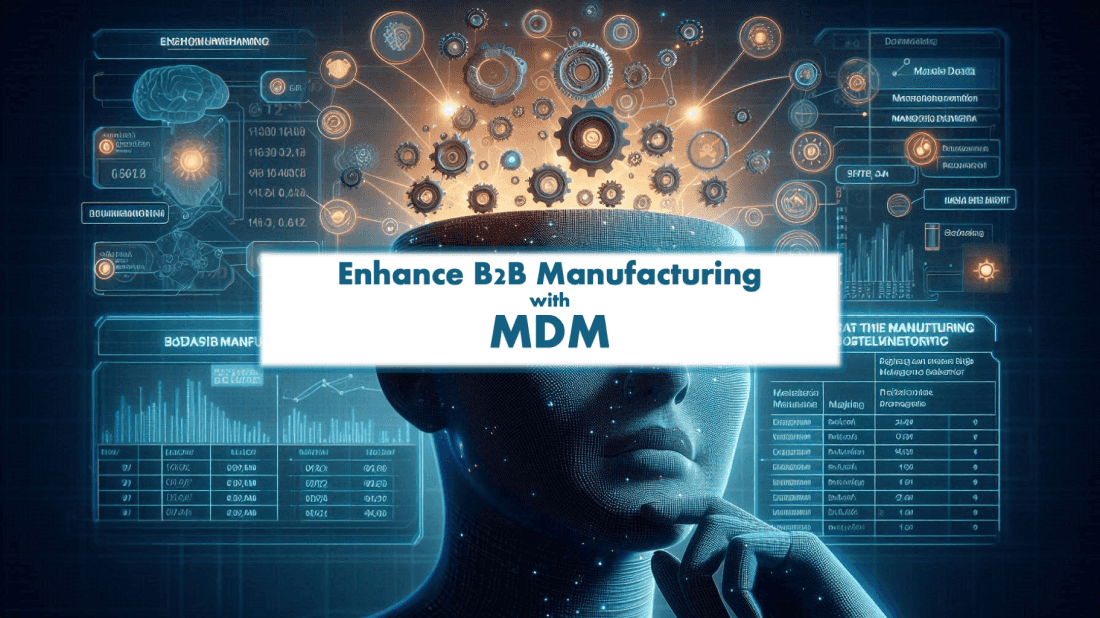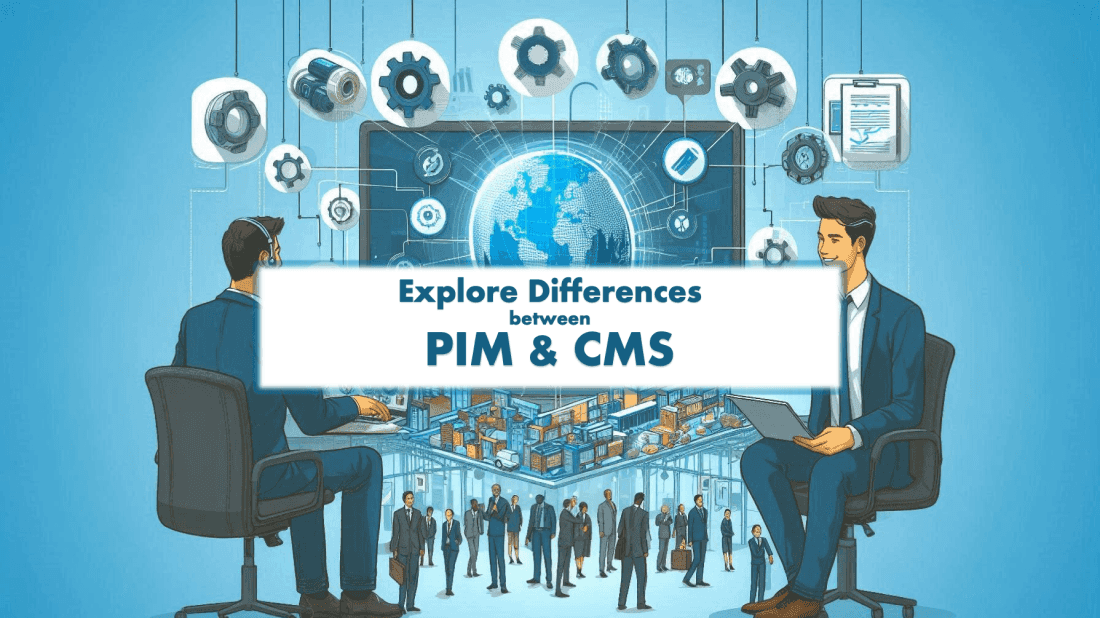Jan 4th, 2024
The Best PIM Solution vs. Traditional PDM Comparison
Categories:Product Information Management SystemProduct Data Management SystemCustomer acquisition, a.k.a., conversion, is the ultimate crucible for a business and its products and service offerings. A superb product is often not enough to gain customer confidence. Businesses also need to communicate their solutions to their target markets, and internal and external stakeholders for success.
Clear, precise, and consistent communication is critical for building trust and customer acquisition. Over the past few decades, with the digital age, and neck-to-neck competition, quality of product data and its availability has been increasingly critical in differentiating a brand and helping consumers complete their purchase journey.
So, providing accurate, consistent, and comprehensive product data becomes a critical step for OEMs. Producing high-quality product data itself is a challenge for OEMs. OEMs also need to ensure that this data is quickly available to their sales funnels and channels. This process usually is not only time consuming but also tedious due to various data silos and formats.
This is where modern PIM (Product Information Management) systems come into play. The best PIM solutions can significantly reduce the go-to-market time for your products. PIM for manufacturers can effectively resolve the shortcomings of traditional PDMs and improve your sales funnel efficiencies.
Challenges with Traditional Data Management
Traditional Product Data Management systems offer superb data capture opportunities for the product teams. However, PDMs suffer from significant challenges in ensuring the usefulness of the information.
OEMs still using a traditional product data management system can suffer from problems like the following:
- Data Redundancy: Duplicate data in multiple files can lead to data inconsistency.
- Lack of Flexibility: Traditional product data storage is rigid and inflexible, making transfer to different formats and tools difficult and time-consuming.
- Poor Security: Traditional systems have poor information security due to multiple data formats, storage, and lack of sharing controls.
- Lack of Data Sharing and Availability: Traditional systems may lack data sharing and not support real-time or on-demand availability.
- Scalability: Traditional databases are not as scalable and flexible as cloud-based systems.
- Inconsistent Communication: Different teams may receive different specs depending on who or where they receive their information.
- Sluggish Processes: Multi-level human intervention, approvals, and data format issues can slow down communication.
The traditional PDM systems alone are not enough to bring your products to the market and run an efficient sales funnel. PDM leaves several important factors such as governance, sharing, conversion, and validation of product data slowing down the marketing and sales teams.
Why Switch to Product Information Management?
Standard and consistent data from the primary source available in formats suitable for direct consumer engagement can significantly improve sales teams’ performance. Imagine verified, rich product data available to your multilingual sales teams across different markets.
This transition is possible when OEMs enable a unified designation and organization of product data from the development phase. PIM system for manufacturers enables efficient, accurate, and secure storage and communication of product data.
The system is designed to store all marked data in a single primary repository. The product data managers can monitor, clean, and correct the data sets for users. The system will further enable the managers to share the data with various teams, i.e., marketing, channel partners, digital marketers, etc.
The advantages created by the manufacturing PIM system provide data consistency, allowing OEMs to be more confident and agile with the following processes:
- ERP and OMS maintenance
- Inventory updates
- Online product releases
- Creating and managing a large product catalog
- Improving efficiency for marketing and sales teams
- Distributing well-optimized product data
Advantages of PIM for Manufacturers
A modern PIM system enables multi-layer data enrichment as per the needs of the market, team, and purpose. The best PIM software allows you several advantages over the traditional approach. PIM systems offer the following advantages to OEMs:
- Uses NLK Graph feature to reduce the number of edits by up to 90% with a single point of edit for all references of product attributes.
- Improves conversions and revenue through quick and authentic information flow.
- Accurate and synchronized product data enhances Customer Experience.
- Strong governance and data quality rules enable high-quality rich data for each product enabling high-level process automation and improving productivity.
- Centralized data storage helps cut costs by integrating all systems and managing all product data in one location.
- PIM systems enable faster time-to-market by minimizing manual data entry and API integration for secure information transfer.
- PIM enables localization of product information with language, tone, and communication preferences customization.
While the PDM system allows for product data capture, the PIM system ensures the utility of product data by enriching and centralizing it. Thus, a PIM system enables OEMs to automate communication and product information access to relevant parties, including consumers.
Thus, a modern PIM system can significantly reduce the friction between production and marketing teams, improving funnel efficiencies and conversions.
Neurologik’s ProductHub – The Next Step in PIM Evolution
Neurologik’s (NLK) ProductHub enables vertical integration of product information for OEMs and ODMs. ProductHub combines the features of PDM and PIM systems to streamline product data creation, enrichment, distribution, and dissemination. OEMs can create, synchronize, update, govern, and personalize the centralized product data. The consistency of product information helps streamline consumer communication and experience.
Superb product data management and governance features of Neurologik’s ProductHub enables the following benefits for OEMs:
Efficient Master Data Management
ProductHub enables rich data generation and create optimal data configurations. Centralized product data, configurations, and solutions reduce decision times at several levels of the consumer acquisition process. NLK ProductHub's Graph feature reduces the number of edits and time required to update the data across channels. This feature helps teams dedicate more time and effort to implementing advanced data models for their market and procurement decisions.
Seamless Data Sharing
NLK ProductHub features Product Selectors. You can create Product Selectors and use them to develop advanced product selection graphs. Product Selection Graphs allow you to create limitless custom product bundles and even intuitive product selection paths for internal and external teams.
Further NLK ProductHub allows secure distribution of the primary product data through APIs to internal and external teams across the value chain.
Digital Asset Transformation
NLK’s ProductHub empowers OEMs to transform the humble website into a comprehensive self-service portal. With multi-lingual support, NLK PIM can provide global OEMs with a global website that becomes a valuable knowledge hub for their partners and consumers.
Superb Customer Experience
Data consistency eliminates the possibility of communication errors and improves the efficiency of marketing funnels. This information consistency enables your sales and marketing channels with quick and multi-lingual cataloging. With NLK ProductHub, OEMs can expect to halve their time-to-market and be more confident with data-driven decisions.
Automating Go-to-Market with Neurologik’s ProductHub
Neurologik offers four products to enable complete informational integration for OEMs – ProductHub, MarketingHub, SalesHub, and ExternalHub. Each module enables complete data automation and control for a specific value chain.
ProductHub provides and enriches the foundational product data at the OEM with a central repository, rich data creation, governance, and advance sharing possibilities. ProductHub allows OEMs to go beyond product data creation and management to smart automation for product alignment for different customers.
Consistent and reliable product information will allow OEMs to implement data-driven automation and benefit from technologies like IoT, AI/ML, and big data.







